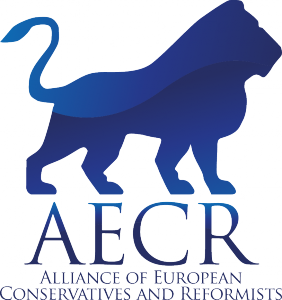 Professor Hannes H. Gissurarson gives a lecture on the Icelandic bank collapse at a breakfast meeting organised by the Swedish think tank Timbro in Stockholm Tuesday 29 October 2013. The lecture will be in English and is titled “Why Was Iceland Left Out in the Cold?” It forms a part of the joint RNH-AECR project on “Europe, Iceland and the Future of Capitalism”.
Professor Hannes H. Gissurarson gives a lecture on the Icelandic bank collapse at a breakfast meeting organised by the Swedish think tank Timbro in Stockholm Tuesday 29 October 2013. The lecture will be in English and is titled “Why Was Iceland Left Out in the Cold?” It forms a part of the joint RNH-AECR project on “Europe, Iceland and the Future of Capitalism”.
The abstract of the lecture is the following: “As described in the famous dialogue between the Athenians and the Melians, international politics has often meant the rule of the strong over the weak. Here, a modern example will be considered, that of Iceland in the 2007–2009 international financial crisis. In September 2008, the American Fed announced currency swap agreements with the Swedish, Danish and Norwegian central banks, essentially issuing a license to those banks to print dollars. The request of Iceland’s Central Bank to be included was rejected. In October 2008, the British Labour government closed down the two Icelandic-owned banks in England, on the same day that it announced an immense rescue package for all other banks in England. Moreover, the British government used an anti-terrorism law to freeze the assets of one of the Icelandic banks, briefly even putting the Icelandic Central Bank and the Ministry of Finance on a list of terrorist organisations, alongside the Al-Qaida and the Talibans. What explains the refusal of the American Fed to include Iceland? Was the foreseeable collapse of its banks meant to be an elimination of unwelcome competition in European financial markets, as well as a lesson and a warning? Was the British Labour government under pressure from Labour-controlled municipalities which had deposited large sums of money in accounts in the Icelandic banks? Was the ferocity of the British response to the Icelandic crisis because the British authorities expected the Icelandic banks to behave like Lehman Brothers which had transferred enormous amounts of money to the US just before its collapse? Most importantly, what does this example tell us about the rules really applying in international affairs, in a dispute between the strong and the weak, an Athens and a Melos, in the midst of a grave crisis?”
 Urban Bäckström, the Governor of Sweden’s Central Bank in 1994–2001 and presently the Director of the Swedish Employers’ Association, will also give a talk at the breakfast meeting. An economist by training, Bäckström worked in the Ministry of Trade, as the Chief Economist of the Moderate Union Party and later the Shareholders’ Association, and as the Secretary of the Ministry of Finance during the Swedish financial crises of the early 1990s. As Central Bank Governor, he had to tackle the impact on Sweden of the 1997 Asian financial crisis. He was for two years director of the Scandia Life Insurance Company where the Icelandic corporations Kaupthing and Burdaras were shareholders for a while.
Urban Bäckström, the Governor of Sweden’s Central Bank in 1994–2001 and presently the Director of the Swedish Employers’ Association, will also give a talk at the breakfast meeting. An economist by training, Bäckström worked in the Ministry of Trade, as the Chief Economist of the Moderate Union Party and later the Shareholders’ Association, and as the Secretary of the Ministry of Finance during the Swedish financial crises of the early 1990s. As Central Bank Governor, he had to tackle the impact on Sweden of the 1997 Asian financial crisis. He was for two years director of the Scandia Life Insurance Company where the Icelandic corporations Kaupthing and Burdaras were shareholders for a while.


